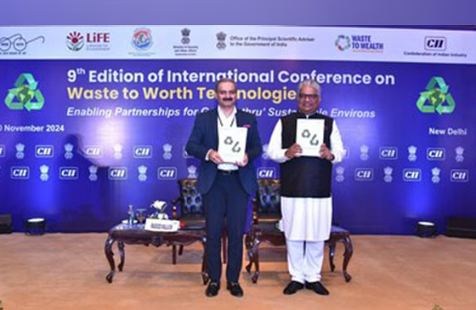9th International Conference on Waste to Worth
The 9th International Conference on Waste to Worth brought into light India’s commitment to sustainable practices. Bhupender Yadav, Minister of Environment, stressed the need for a skilled workforce in recycling technologies, which focused on innovation and global partnerships to tackle waste management issues.
Importance of Waste as a Resource
Yadav emphasised that waste should not be viewed as a burden. Instead, it should be seen as a valuable resource. Sustainable practices are vital for economic, environmental, and social well-being.
Key Government Policies
Several initiatives were introduced to enhance waste management. These include the Plastic Waste Management Rules and E-Waste Management Rules. The Construction and Demolition Waste Management Rules aim to promote eco-friendly practices in industries. The Motor Vehicle Scrap Policy also supports sustainable production.
National Circular Economy Framework (NCEF)
Tokhan Sahu introduced the NCEF as a roadmap for smart cities, which focuses on efficient waste management. It is crucial for achieving India’s urban development goals.
Baldeo Purusharth brought into light the significance of grassroots solutions. Ideas can emerge from anyone, including children. Systems are needed to harness this collective ingenuity for effective waste management.
Advanced Recycling for Net-Zero Goals
Masood Mallick discussed the importance of decarbonising materials. Advanced recycling can transform steel, glass, and plastics into valuable resources. This approach is essential for achieving net-zero emissions.
The conference launched the second edition of NCEF. It provides guidance for industries to adopt sustainable business models. The CII 4R Awards recognised companies excelling in waste-to-worth practices.
Participation and Discussions
Over 300 delegates attended, including industry leaders and policymakers. Topics included governance, circular economy transitions, and sustainable growth opportunities. An exhibition showcased cutting-edge waste-to-worth technologies.
The conference reaffirmed India’s dedication to becoming a global leader in sustainability. It brought together diverse stakeholders to drive innovative solutions in waste management.
Important Facts for Exams:
- NCEF: The National Circular Economy Framework aims to create smart cities. It focuses on efficient waste management practices. This framework is essential for India’s urban development goals.
- CII 4R Awards: The CII 4R Awards recognise companies excelling in waste-to-worth practices. Winners include Schindler India and EverEnviro. These awards promote innovative approaches to converting waste into resources.
- Grassroots Solutions: Grassroots solutions are vital for effective waste management. Ideas can emerge from anyone, including children. Harnessing collective ingenuity enhances sustainability efforts in circular economy practices.
Month: Current Affairs - December, 2024
Category: Environment Current Affairs


